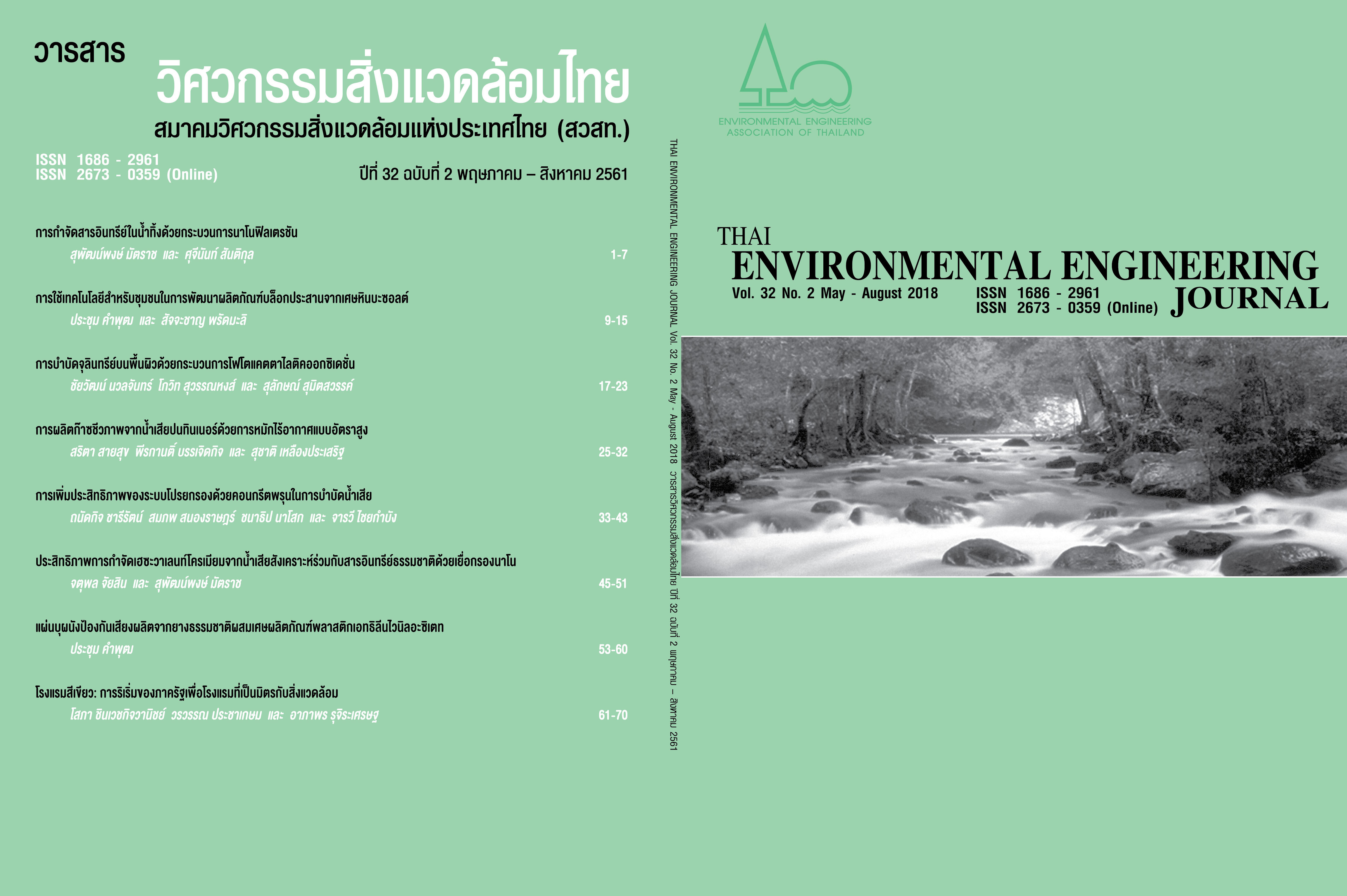Green Hotels: Governmental Initiatives for Environmentally Friendly Hotels
Main Article Content
Abstract
Department of Environmental Quality Promotion (DEQP) has implemented the project to promote participation in environmentally friendly hotel (Green Hotel). Enhancement of more efficient consumption of energy and environmental resources and better environmental quality management are expected from participating hotels. Assessment criteria of environmentally friendly service for hospitality industry in Thailand have been developed and used as a guideline for participating hotels in this Green Hotel project. The criteria compose of 6 major aspects or 45 indices with full mark of 150 scores. Rewards for participants are categorized into three classes of gold, silver and bronze. During project years of 2016 and 2017, there were totally 146 participating hotels, 119 of which were supported by DEQP budget, while the others were supported by Designated Areas for Sustainable Tourism Administration (Public Organization) (DASTA). After the assessment of total 146 participating hotels, there were 52 hotels recognized as gold class score, while there were 39 hotels received silver class score and another 42 hotels received bronze class score. The others (13 hotels) got only certificate for participation. The results of assessment were in the range of 62-136 scores, the average of which was 110 scores (or 73% of full mark). In conclusion, this Green Hotel project helps the participants to learn how to practice environmentally friendly service. They have gained more understand about the importance of gathering resources consumption rate and how to analyze and utilize those data.
Article Details
References
[2] Chan, E.S.W., Hon, A.H.Y., Chan, W. and Okumus, F. 2014. What drives employees’ intentions to implement green practices in hotels? The role of knowledge, awareness, concern and ecological behaviour. Int. J. Contemp. Hosp. M. 40: 20-28.
[3] Department of Environmental Quality Promotion. 2016. Final Report – Green Hotel Project Year 2016 (in Thai).
[4] Department of Environmental Quality Promotion. 2017. Final Report – Green Hotel Project Year 2017 (in Thai).
[5] Han, H. and Hyun, S.S. 2018. What influences water conservation and towel reuse practices of hotel guests? Tourism Management. 64: 87-97.
[6] Dimara, E., Manganari, E. and Skuras. D. 2017. Don't change my towels please: Factors influencing participation in towel reuse programs. Tourism Manage. 59:
425-437.
[7] Kim, J.Y., Hlee, S.Y. and Joun, Y.H. 2016. Green practices of the hotel industry: Analysis through the windows of smart tourism system. Int. J. Contemp. Hosp. M. 36(6): 1340-1349.
[8] Hsiao, T.Y., Chuang, C.M., Kuo, N.W. and Yu, S.M.F. 2014. Establishing attributes of an environmental management system for green hotel evaluation. Int. J. Contemp. Hosp. M. 36: 197-208.
[9] Parpairi, K. 2017. Sustainability and Energy Use in Small Scale Greek Hotels: Energy Saving Strategies and Environmental Policies. Procedia Environ. Sci. 38: 169-177.
[10] Chen, S.L., Chen, H.H., Zhang, K.Q. and Xu, X.L. 2018. A comprehensive theoretical framework for examining learning effects in green and conventionally managed hotels. J. Clean Prod. 174: 1392-1399.


